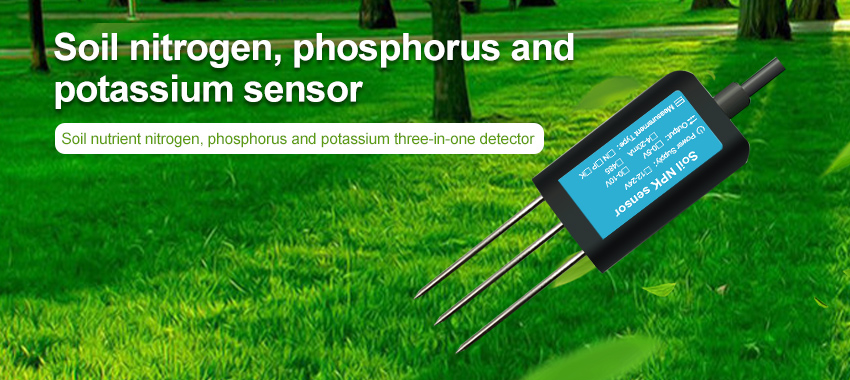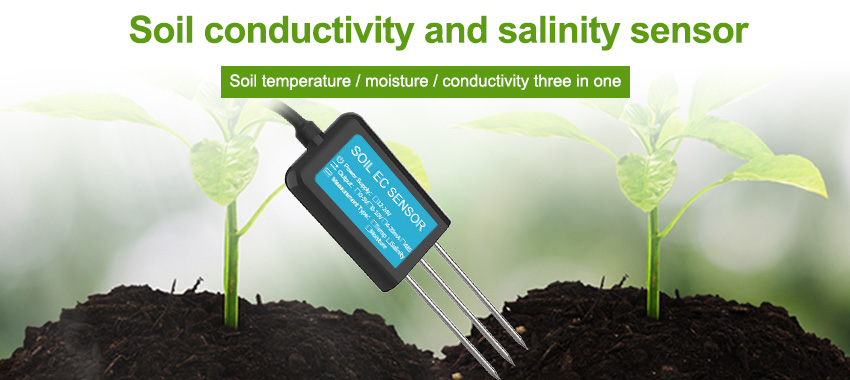In modern agriculture, optimizing productivity is a key concern for farmers. Maximizing crop yields while ensuring efficient resource utilization is essential for sustainable and profitable farming. Soil sensor technology offers a valuable solution to enhance agricultural productivity by providing real-time data on soil conditions. With the insights gained from soil sensors, farmers can make informed decisions regarding irrigation, fertilization, and overall crop management. In this article, we will explore the benefits of using soil sensor technology in agriculture and how it contributes to enhancing productivity.

Soil Moisture Monitoring:
Soil moisture is a critical factor that directly affects plant growth and crop productivity. Soil sensors allow continuous monitoring of soil moisture levels, enabling farmers to make informed decisions about irrigation scheduling. By avoiding under or over-irrigation, farmers can optimize water use, conserve resources, and prevent water stress or waterlogging in plants. This precision in moisture management promotes healthier root development, improves nutrient uptake, and ultimately increases crop yields.
Nutrient Management:
Proper nutrient management is crucial for optimal plant growth and high crop yields. Soil sensors can measure soil nutrient levels, including nitrogen, phosphorus, potassium, and micronutrients. By continuously monitoring nutrient availability, farmers can adjust fertilizer application rates accordingly, ensuring that crops receive the necessary nutrients for healthy development. This targeted approach minimizes the risk of nutrient deficiencies or excesses, enhances plant health, and maximizes yield potential.
pH Monitoring:
Soil pH significantly impacts nutrient availability and microbial activity in the soil. Soil sensors equipped with pH monitoring capabilities enable farmers to assess and manage soil acidity or alkalinity. By maintaining the appropriate pH range for specific crops, farmers can optimize nutrient uptake, improve soil structure, and promote beneficial microbial activity. Maintaining proper pH levels in the soil creates an ideal growing environment, leading to increased crop productivity and quality.
Salinity Management:
High soil salinity can negatively impact plant growth and productivity. Soil sensors can measure soil salinity levels, allowing farmers to monitor and manage salt accumulation in the root zone. By detecting high salinity levels, farmers can implement appropriate irrigation practices or leaching techniques to prevent salt buildup and maintain an optimal growing environment for crops. Effective salinity management helps ensure plant health, minimize yield losses, and preserve soil productivity.
Temperature Monitoring:
Soil temperature plays a critical role in seed germination, root development, and nutrient uptake. Soil sensors provide real-time data on soil temperature, enabling farmers to assess the suitability of planting conditions and adjust cultivation practices accordingly. By monitoring soil temperature trends, farmers can optimize planting schedules, promote seedling emergence, and enhance crop establishment. This proactive approach to temperature management sets the stage for healthy plant growth and improved productivity.
Data-Driven Decision Making:
Soil sensor technology brings data-driven decision-making to agriculture. By collecting real-time information on soil conditions, farmers can make precise management decisions tailored to each field’s specific needs. Data from soil sensors can be integrated with other farm management systems, such as weather data and crop modeling, to create comprehensive strategies for optimizing productivity. This integration enables farmers to adopt a proactive and adaptive approach to crop management, leading to increased efficiency, reduced input costs, and improved overall productivity.

Conclusion:
Soil sensor technology revolutionizes agricultural productivity by providing farmers with real-time insights into soil conditions. By monitoring soil moisture, nutrient levels, pH, salinity, and temperature, farmers can make informed decisions regarding irrigation, fertilization, and cultivation practices. This data-driven approach leads to optimized resource utilization, improved plant health, and increased crop yields. The integration of soil sensor data with other agricultural management systems further enhances productivity by creating comprehensive strategies tailored to specific field conditions. By embracing soil sensor technology, farmers can enhance agricultural productivity, profitability, and sustainability for a prosperous future in farming.
